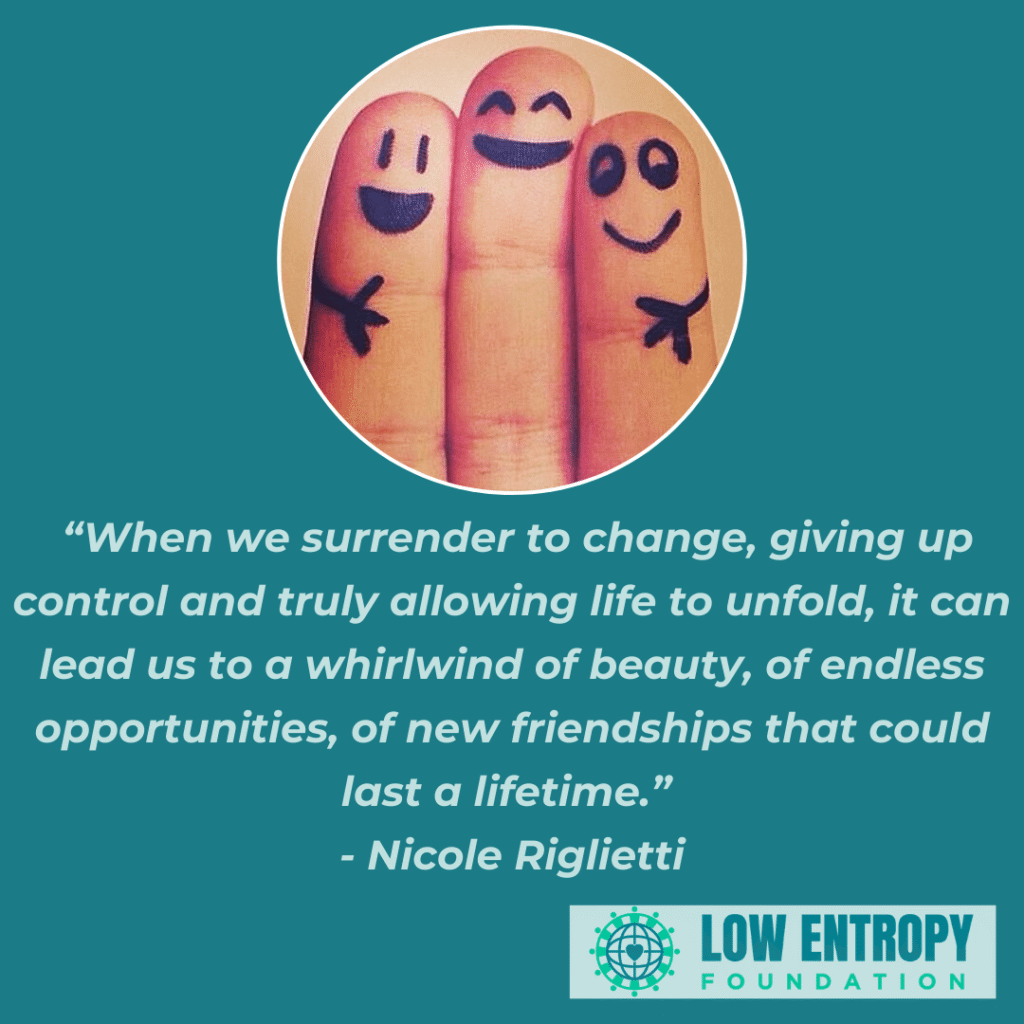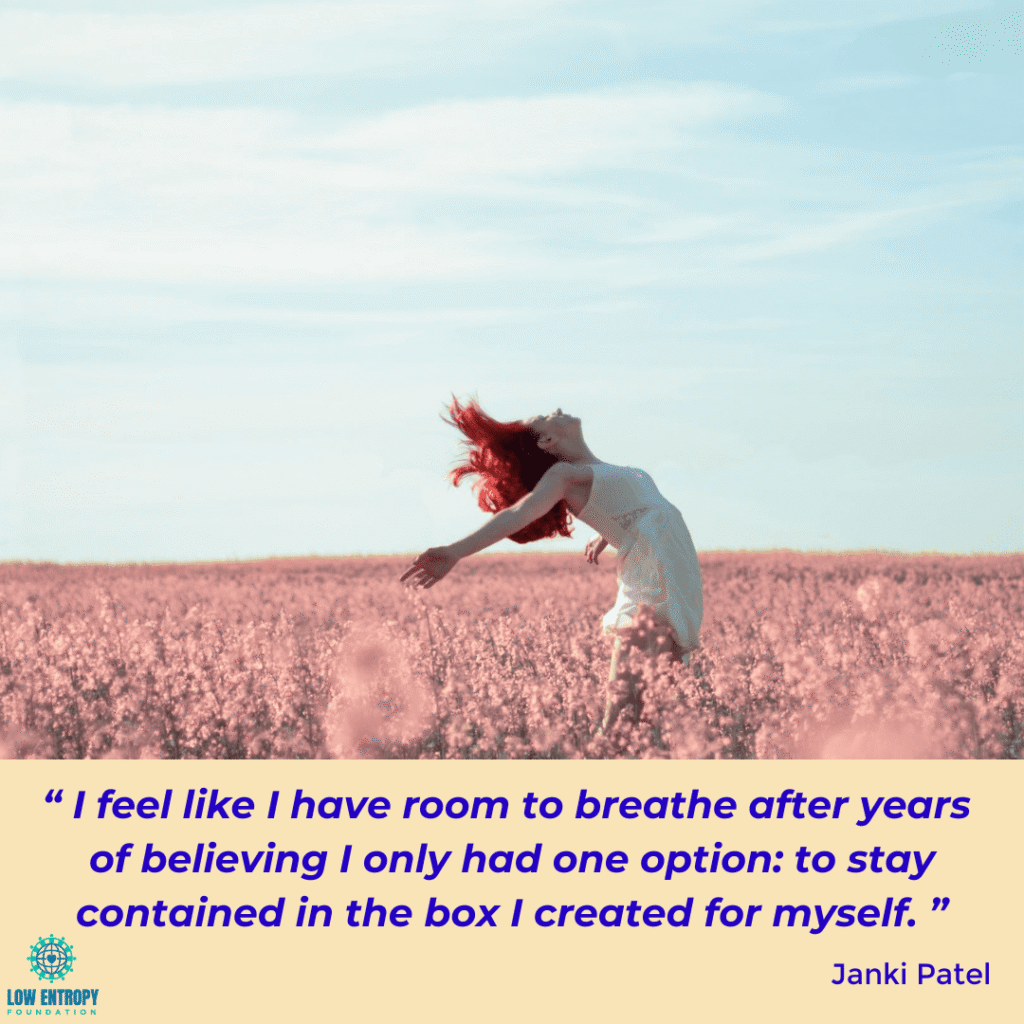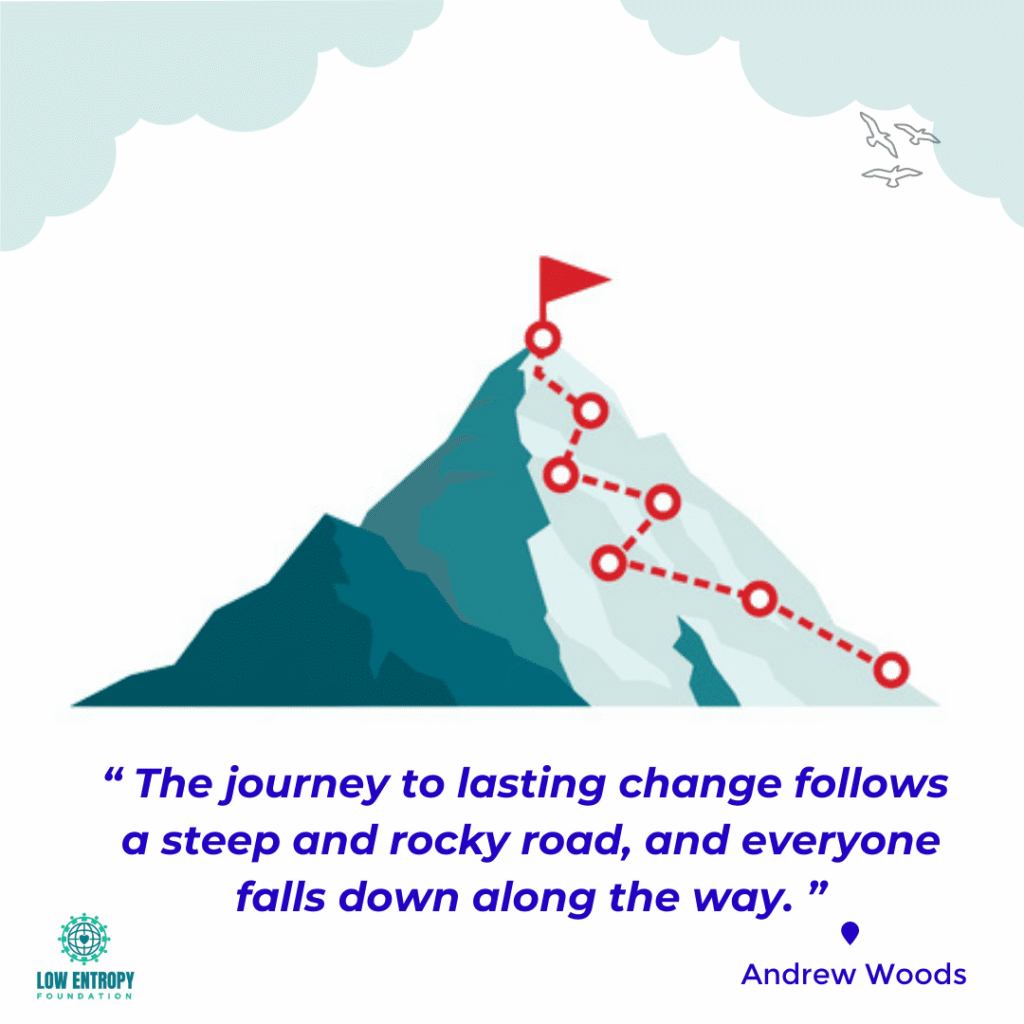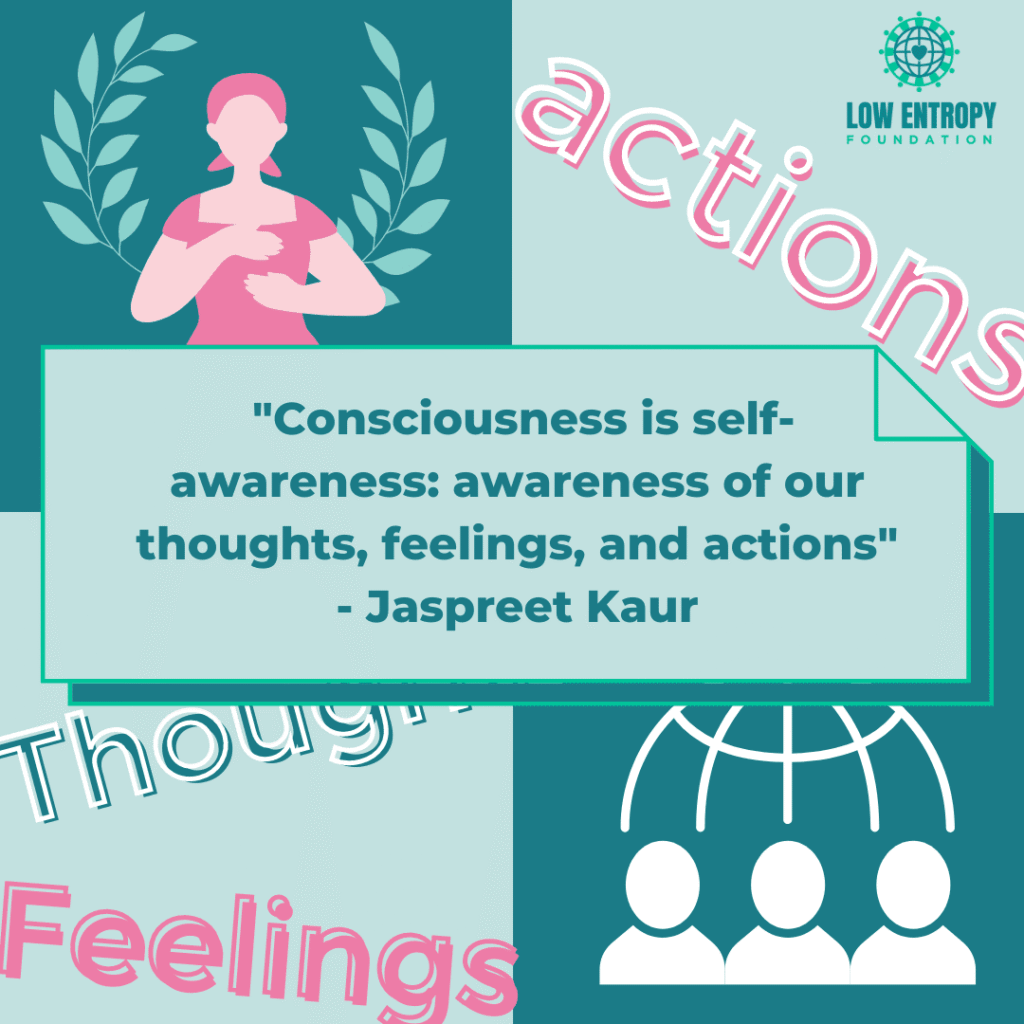What does it mean to leave a lasting legacy?
Faizah Latif (she/her/hers), Low Entropy Volunteer Writer “To leave the world a bit better, whether by a healthy child, a garden patch, or a redeemed social condition; To know even one life has breathed easier because you have lived. This is to have succeeded.” – Ralph Waldo Emerson Every individual should strive towards creating […]
Start Small
Eri Ikezawa (she/her/hers), Low Entropy Volunteer Writer Picture this: A blank wall with nothing adorning it but a single painting. At first glance, it just looks like there’s nothing except a forest in the frame. There are billowing trees, with trunks as wide as they are tall and branches stretching lazily with their […]
Stay-at-Home Schooling
While educational institutions adapted their curriculums to a pandemic reality, Low Entropy Volunteer Writer Jihu Lee took some valuable lessons from isolation itself. The world of education during the coronavirus pandemic has shifted impressively to compensate for the loss of conventional learning opportunities. My younger sister, Brooklyn, spent fourth grade fully online. Not surprisingly, […]
Never Give Up
In one magic moment, near some orange trees by the Caspian Sea, Simin Ghaffari – now in Low Entropy’s work experience program – discovered a source of resilience and gratitude within the horrifying violence of war. When I was 24 years old, my country, Iran, was war-torn. My father was an army officer, and […]
Jump

Plunging through the troposphere, Low Entropy Volunteer Writer Nicole Riglietti found a perfect metaphor for the eye-opening act of turning your dreams into action. I keep putting immense pressure on myself. Pressure to grow up. To make realistic choices in life. To have one foot in a life full of security and the other […]
Like Onions and the Moon

Armed with an arsenal of metaphors, Low Entropy Volunteer Writer Nicole Riglietti waxes poetic on the nature of change and how essential it is to the human experience. Change is a constant in our lives. As the moon moves through its monthly phases, so do humans; it’s inevitable. We struggle, we strive, we fail […]
The Career Box

Sometimes convincing yourself to stop holding you back can be more difficult than overcoming external obstacles. After making a big career commitment at a young age, Low Entropy Volunteer Writer Janki Patel was able to look back and realize that it’s okay to make decisions that are right for you now, regardless of what you […]
There and Back Again: On the Road to Change

Andrew Woods, Low Entropy Volunteer Writer Please note that this article contains brief references to substance use. “Why do you go away? So that you can come back. So that you can see the place you came from with new eyes and extra colors. And the people there see you differently, too. Coming […]
The Fearless Art of Changing Your Life
They are common notions, that life-changing experiences occur rarely and require drastic measures. Not so, posits Low Entropy Volunteer Writer Daniel Wilkens. Daniel proposes that, at any time, we are surrounded by a myriad of life-altering, low-barrier opportunities, just waiting to make us into the best versions of ourselves. Sometimes change is forced upon […]
Conscious community

We live in an era where life is dynamic and speedy. We are always caught up in our day-to-day life and are unconsciously doing one thing after another. We never take a moment to evaluate our unconscious behavior patterns, and as a result, we end up surrounding ourselves with people who may be self-centered. When […]
